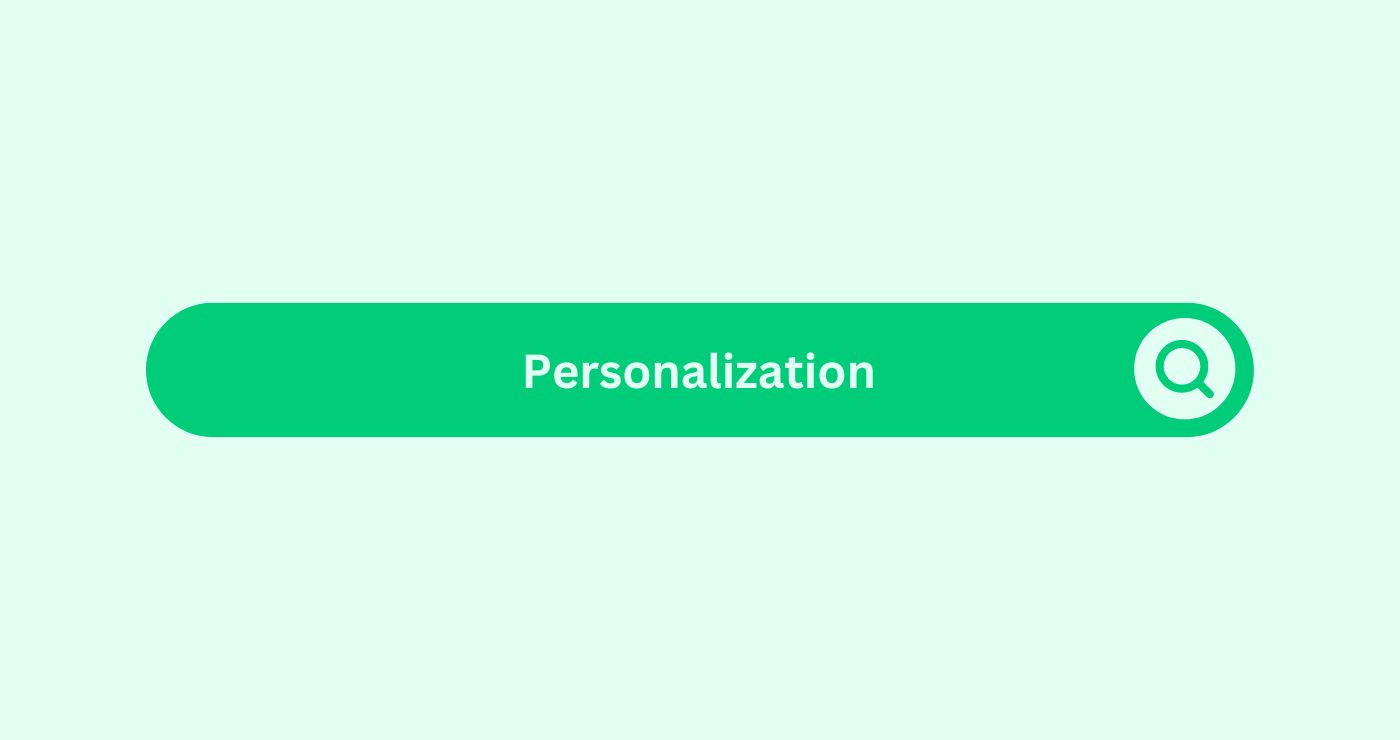Definition
Personalisation refers to the process of tailoring content, recommendations, or experiences to individual users based on their preferences, behavior, demographicsDefinition Email demographics provide statistical data on su..., or past interactions. In the context of SEO, personalization involves optimizing website content and user experiences to cater to specific user segments or individuals.
How You Can Use
An e-commerce website can implement Personalisation by displaying product recommendations based on a user’s browsing history or purchase behavior. For example, if a user frequently buys running shoes, the website can prioritize displaying related products or promotions on the homepage or product pages.
Key Takeaways
- Enhanced User Experience: Personalisation improves the user experience by providing relevant and engaging content tailored to individual preferences.
- Increased EngagementDefinition Engagement in content marketing refers to the deg...: Personalised content and recommendations can leadDefinition A Lead in the context of SEO refers to a potentia... to higher user engagementDefinition Engagement in content marketing refers to the deg..., longer time on site, and increased conversionDefinition In the realm of SEO, Conversion refers to the pro... rates.
- Improved Customer Retention: By delivering Personalised experiences, businesses can build stronger relationships with customersDefinition Customers, in the context of SEO, refer to indivi... and increase retention rates.
- Data-driven Insights: Personalisation requires leveraging data analyticsDefinition In SEO, analytics involves collecting, measuring,... to understand user behavior and preferences, providing valuable insights for optimizing content and marketing strategies.
- Balancing Privacy and Personalisation: While Personalisation offers benefits, businesses must prioritise user privacy and compliance with data protection regulations to maintain trust and credibility.
FAQs
Is personalization important for SEO?
Yes, personalization plays a significant role in SEO by improving user experience, increasing engagementDefinition Engagement in content marketing refers to the deg..., and driving conversions.
What types of data are used for personalization in SEO?
Data such as browsing history, purchase behavior, demographicsDefinition Email demographics provide statistical data on su..., location, and interests are commonly used for personalization in SEO.
How can I implement personalization on my website?
You can implement personalization through various methods, including dynamic contentDefinition Dynamic Content refers to web content that change..., product recommendations, personalized emails, and targeted advertisingDefinition Targeted advertising in AI terms in content marke....
Does personalization affect search engine rankings?
While personalization itself doesn't directly impact search engine rankings, it can indirectly influence user engagementDefinition Engagement in content marketing refers to the deg... metricsWhat are Metrics in the context of SEO? Metrics in SEO refer..., which can affect rankings.
What are some tools for implementing personalization in SEO?
Tools such as customer relationship management (CRM)Definition Customer Relationship Management (CRM) is a techn... software, marketing automationDefinition AI-driven marketing automation jumps in to take o... platforms, and website personalization tools can help implement personalization in SEO.
How do I balance personalization with user privacy concerns?
It's essential to be transparent about data collection practices, obtain user consent where necessary, and adhere to data protection regulations to address privacy concerns.
Can personalization lead to filter bubbles or echo chambers?
Personalization algorithms should be designed to provide diverse perspectives and avoid reinforcing existing biases or limiting exposure to new information.
How do I measure the effectiveness of personalization efforts?
Key metricsWhat are Metrics in the context of SEO? Metrics in SEO refer... for measuring personalization effectiveness include conversionDefinition In the realm of SEO, Conversion refers to the pro... rates, engagementDefinition Engagement in content marketing refers to the deg... metricsWhat are Metrics in the context of SEO? Metrics in SEO refer... (e.g., time on site, page views), and customer satisfaction scores.
What are some common challenges in implementing personalization in SEO?
Challenges may include data integrationDefinition Integration in the SEO Glossary combines tactics ... and quality, technology limitations, regulatory compliance, and the need for ongoing optimization and testing.
Is personalization suitable for all types of websites?
Personalization can benefit a wide range of websites, but its suitability depends on factors such as target audienceDefinition The term "Audience" refers to the group of indivi..., available data, and business objectives.




